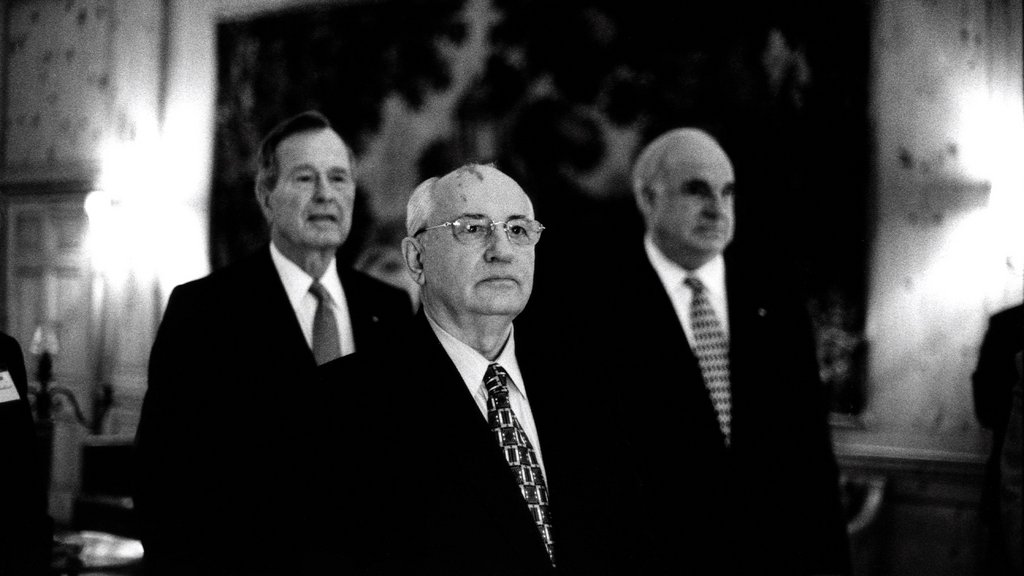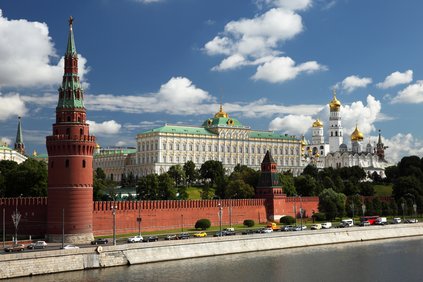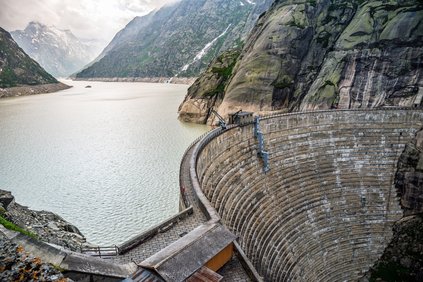Opinions - 01.09.2022 - 00:00
Mikhail Gorbachev: An Ambivalent Legacy
Former Soviet leader Mikhail Gorbachev, a defining figure in the 20th century has died. An article by Ulrich Schmid.

1 September 2022. Celebrated politician Mikhail Gorbachev, a defining figure of the 20th century, has died leaving behind an ambivalent legacy. In Germany, he is celebrated because he made reunification possible. The states of the former Eastern bloc owe their regained sovereignty to him. In Russia however, he is largely rejected because his name stands for the political and economic decline of the Soviet Union. Gorbachev's policies shaped the era that begins with the fall of the Berlin Wall and ends with the war in Ukraine. Martin Aust, Andreas Heinemann-Grüder, Angelika Nussberger and Ulrich Schmid examine this period in a new book that will be published on 12 September.
Mikhail Gorbachev was born in 1931, came from a simple peasant village in the North Caucasus and grew up in southern Russia. He always emphasized the fact that his father had been Russian and his mother Ukrainian. He was later ridiculed for his provincial pronunciation of the Russian language.
Gorbachev went to Moscow to study law and as a young man, became a convinced Stalinist. The death of the Soviet dictator in the spring of 1953 was a shattering experience for him, although the terror had also ravaged his family. Gorbachev's student years also saw him marry Raissa Titarenko, who would later play a decisive role in the Soviet Union's international prestige as an elegant and cosmopolitan first lady. It was not until 2012 that Gorbachev also made a private tragedy public: the young couple had to have their first child aborted because Raissa suffered from a dangerous heart disease. In 1957, their daughter Irina was born.
After graduation, Gorbachev began a steep ascent in the Communist Party apparatus. At this time, Gorbachev managed to secure the support of the powerful KGB chief Andropov and the conservative chief ideologist Mikhail Suslov. As early as 1971, he became a full member of the Central Committee and thus belonged to the inner circle of power. As a high party official, he also enjoyed all the privileges of the Soviet elite. He was able to travel extensively abroad in the West, to Italy, France, the Netherlands, Belgium and the Federal Republic of Germany.
In the 1980s, Gorbachev's star continued to rise. The leadership clique was unable to combat the inefficiency of the Soviet planned economy. Gorbachev had to wait for the deaths of two elderly general secretaries who had only been in office for a short time. In 1985, he rose to the highest leadership position himself. Gorbachev stopped the ruinous arms race with the United States. Domestically, he focused on an economic program that would "accelerate" the production of goods. He also called for "glasnost," or transparency about political and social grievances. The famous slogan of "perestroika" appeared only later and remained strangely contour less. It was not until 1987 that Gorbachev published an extensive book on "perestroika" in which he tried to explain his program. However, there was a grotesque contradiction between his comprehensive claim to modernization and the backward-looking reform proposals, which ranged from Leninist principles to the merits of the planned economy to the leadership role of the Communist Party.
Ultimately, Gorbachev became a victim of his own liberalization course. His greatest illusion was that he believed to the end that the socialist social system could be reformed. Admiration for the revolutionary leader Lenin runs like a thread through his speeches. He prominently placed his inauguration as General Secretary under the sign of "Lenin's teachings," which he described as a "guide to action" and a "compass." Gorbachev even adopted Lenin's call for the partisanship of the press and media without modification. In keeping with Lenin's spirit, he also considered the nationality question in the Soviet Union to have been resolved.
The list of Gorbachev's omissions and misjudgments is long: He praised the Khmer Rouge as "Cambodian patriots," he belatedly lifted the banishment of dissident Andrei Sakharov, he never condemned the suppression of the Prague Spring, he actively participated in downplaying the shooting down of a South Korean passenger plane, he addressed the population in a televised speech barely three weeks after the Chernobyl nuclear disaster, he denied the existence of the secret Additional Protocol to the Hitler-Stalin Pact.
Gorbachev's historical significance lies in the fact that he put an end to the Cold War and did not stop the breakup of the Soviet Union with military force. He gave Russia a chance for democratic, constitutional and liberal development. He perceived the Russian invasion of Ukraine as the destruction of his life's work.
Ulrich Schmid is Professor of Russian Culture and Society at the University of St.Gallen.
Image: KEYSTONE / DANIEL BISKUP/LAIF
More articles from the same category
This could also be of interest to you
Discover our special topics
















